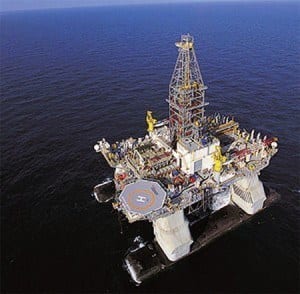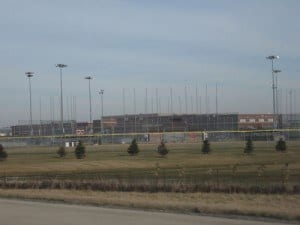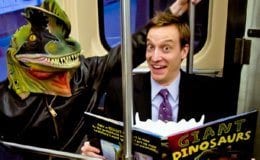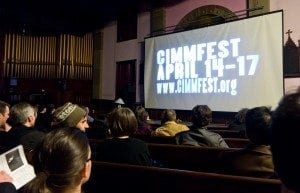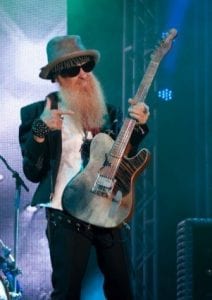
Yann Demange on his directorial debut feature film
Why did you decide to take on this script?
I loved the screenplay. It was sent to me and I immediately connected with how muscular the writing is and the humanity in the script. We developed it and moved it on a long way, but when I read it, I was like “Oh my God, this really transcends the specificity of the troubles and it has a universality.” It feels like it could be talking about a lot of contemporary conflicts taking place in the world right now from Iraq to Afghanistan to Syria, you name it. I felt like it really identified a pattern of human behavior that keeps repeating itself. Also, it was really touching about children growing up in conflict and that’s something I feel passionate about. I met with the writer and the producer and I loved them – straight away we hit it off and I had ideas that they really responded to so we started this journey.We wrote about 4 or 5 drafts in the space of 2 or 3 months. Next thing we knew it was like “okay, let’s try and get this made,” so it was a real old school collaboration. But it’s the themes and the quality of the writing and the people involved that really attracted me to it.
Do you think everyone really came together and was able to make a universal idea of what they thought the movie would turn out like?
Well I had a very strong take on what I wanted it to be and once they agreed,responded and connected to it we worked as a united front. I created a tone document, a sheet that makes sure everyone’s trying to make the same film. The stars aligned. I’ve experienced it on a TV show, where the people involved actually all have their own version of it. You want to make sure you all want to make the same film, and on this one we were real collaborators. In fact, I’m working with the writer and the producer on a new project; we’re setting up to do something about the LA riots so it was just a great collaboration and it’s rare and few and far between that you have those experiences.
So do you think the finished product reflects what you all had in your imaginations when you were bringing it together?
Yes. It’s certainly what I had in mind when I created the tone document. I knew how I wanted it to sound and look, and in the end it’s pretty much what we were always talking about doing. It was one of those times where I wasn’t being prescriptive and telling them i’m taking their baby and making my own out of it – it was like “this is what I’m thinking” and they loved it. We were vibing and it was a toing and froing cause sometimes you have a vision and the writer’s vision is completely different, but in this instance we agreed and we worked towards the same end.
I thought it was really interesting that you had the score finished before you even started filming.
Yeah I worked with the composer quite closely and we became great friends. Because I had to start shooting with the night shoot and the sequences before I’d shot any lines of dialogue, I basically needed something to help me find a way in terms of tone, pace and rhythm. I found that asking David to write the music beforehand and actually having it on set and listening to it on my headphones as I was shooting scenes and sequences that were purely visual, gave me like a metronome, a rhythm. It gave me a sense of atmosphere and what would work. It’s the first time I’ve done that and I think I’ll keep doing it. It’s a wonderful thing to have on set, it gives you a depth when you listen to the music – there’s a depth to a movement or a little camera moment. When you’re caught up in the hoohah of production on the daily you don’t see that, you see it later, but it’s nice to have on set I’ve found.
Do you have a preference as far as directing television versus film?
I don’t think of it like that -it’s not one versus the other. There used to be a time when the landscape was always compartmentalized – Are you a film director? Are you a TV director? – you can’t do them all? That bullshit is falling away now, people cross pollinate and you can work across mediums and I find that exciting. I love television and I love film. Film was my first love and it’s always been the thing I’m most passionate about. I want to do more cinema, but there’s nothing better than a box set. I love True Detective and I was watching Nik the other day, I mean I love that you can create a world and go in. The Wire was a turning point for me, I was like “oh my god television can do this?!” In a way it’s the golden age of our generations, the mass migration of the most intelligent drama, the most interesting writing and the most interesting talent are going to television just as a byproduct of studios being more interested in franchises and pre-existing brands that they can invest in. The television landscape is exciting, but so is indie film, so it’s not one or the other. You’ve got all these wonderful forms -what suits the story you’re trying to tell most? I’ve got one I’m developing now and we’re asking ourselves the question – is it better as an 8 parter or is it better as a movie? The beauty is that we’re in a place now where both are exciting propositions.
If you had an unlimited budget to make any movie, what would you make?
I’d make Blood Meridian, it’s a Cormac McCarthy book, it’s really good. It’s a wonderful western, it’s crazy, violent, poetic, beautifully dark, in many ways possibly unmakeable. Many people have tried, but I’m convinced you could make it. But also right now the thing I really want to do and what I’m putting all of my energy into is the LA riots and looking at what happened there,looking at the shades of gray.


